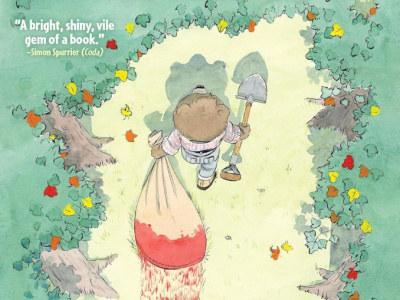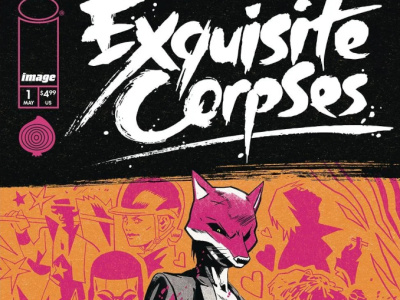
A few weeks ago at the San Diego Comic-Con, we sat down with DC President and Publisher Paul Levitz for our annual talk about the state of the comic business and DC's place in it. In Part 2, we talk about DC's investments in Webcomics. In Part 3, we talk about DC's investment in Japan, and how that relates to its strategy for a flow of content for its CMX line, the launch of DC's new Minx imprint, and the opportunities for cross-fertilization of content and customers with MMORPGs. In Part 4, we talk about DC's film pipeline and strategy, Levitz's take on DC's upcoming releases, and how the changes in the market are changing comics. In Part 1, we talked about the current state of the market and its prospects.
A year ago we talked about Web and phone delivery of comics as sort of a theoretical issue. Here we are a year later and DC has made a couple of investments in Web and phone delivery of content. Let's start with the Japanese investment. When we talked last year you said you thought that phone delivery was better for the comic strip sort of content as opposed to longer, more involved stories. What kind of content do you expect to come out of the Japanese investment, and will it translate into print?
Well the model that Flex uses in
I have seen a great phone application from another company that we were talking with about an investment possibility at one point that just does great phone manga. Beautiful. You might need an iPhone here in the
I think here in the
We'll be watching with curiosity, and if the opportunity seems right, testing along the way to see if there's any model in which people actually want to pay for comics delivered for their screen, but my gut feeling is still that the comics created for print are not a great screen experience and something will have to be done to convert them in some fashion to make them work and play in that fashion.
It works better from the other direction.
I think so. Zuda, on the other hand, is really both going in the other direction and taking advantage of the fact that the Web permits a different kind of creativity. Print comics haven't had a significant dimension of humor as a product category, pretty much in the time that you and I have been in the business.
Mad, that's about it.
Web comics seem to have an opportunity for that, have an opportunity for different kinds of storytelling, and really a tap into a whole other pool of creative passion. You look at the range from a Megatokyo as an adventure strip, to a Dork Tower or a PvP which is humor slash soap opera, humor slash ensemble, and there are all sorts of flavors there that we don't have in our mix, and I think Zuda creates an opportunity for us to do our job well.
At the end of the day, what you're supposed to do as a publisher is create an opportunity for creative people to reach an audience and make a living in the process, and to earn your pay doing that by how you physically create the product for people, how you market the product, distribute it, connect it. Webcomics enable some people to bypass that all, and do it all themselves because they want to do it themselves and that's a wonderful thing, but it's also a hard thing.
If we can create the right mechanism where we're financing people's creativity by giving them the right kinds of deals that they feel provide the right incentive, and then creating a very effective stage for them to reach out on, I think we'll be an attractive proposition for that group of people. We'll have the beta version of the Zuda comics reader here at the show to show some of the cartoonists. It's a lovely tool. It just shows off the comic art, created for the Web in a fashion that would be very, very expensive and hard for an individual to build with off the shelf stuff. Do you need it for every strip? No. Does it make that much of a difference? We don't know. But, it's the equivalent of offering a little better printing, a little better paper, a little better packaging, a little better environment for your creative work to show on, and we think that will be a part of the equation as well and as we move through the next couple of months to the Zuda launch, hopefully the elements that we're showing will be a part of the package that will make people say 'Oh OK, I'd like to be in that game.'
Going back to Flex for a minute, it sounds like they have a fair number of pieces of intellectual property already in development. How long has that been around, and how long before we see some of that stuff in the states?
I think Flex put their first stuff online in the fourth quarter last year if I'm remembering right. There's a very significant investment being made by the group of investors in Flex in building the creative library for it. I think there's a wide range of material, and the caliber of the cartoonists and creators who are doing the work is a very serious caliber, so there's a really good library being built.
How much of that will translate specifically to the American audience is always a question, and some of the stuff being developed in
Click here for Part 3.







